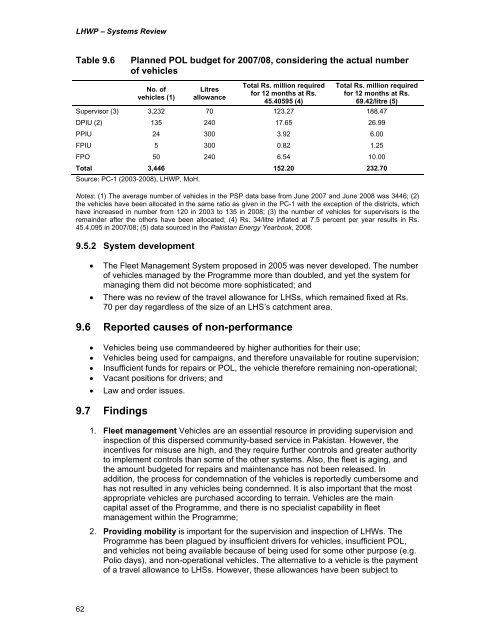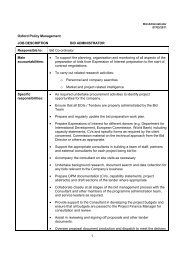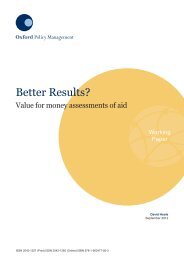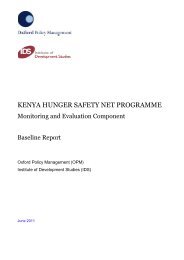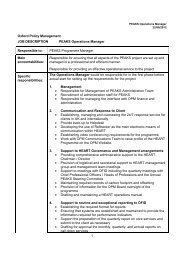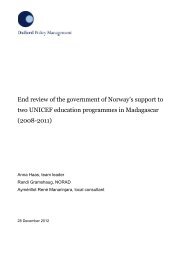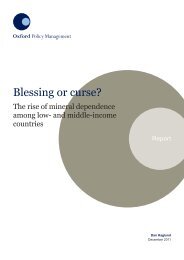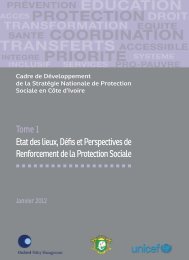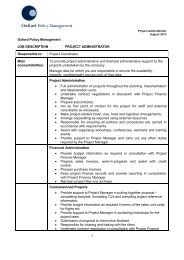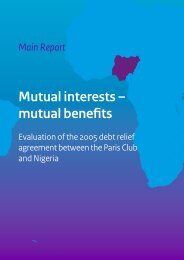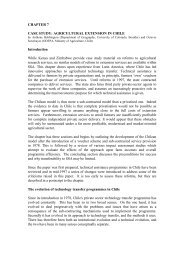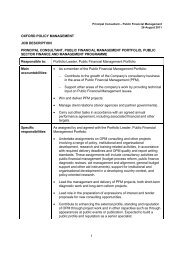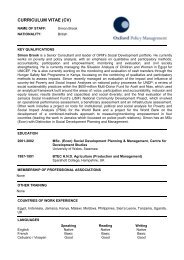LHW Systems Review - Oxford Policy Management
LHW Systems Review - Oxford Policy Management
LHW Systems Review - Oxford Policy Management
You also want an ePaper? Increase the reach of your titles
YUMPU automatically turns print PDFs into web optimized ePapers that Google loves.
<strong>LHW</strong>P – <strong>Systems</strong> <strong>Review</strong>Table 9.6Planned POL budget for 2007/08, considering the actual numberof vehiclesNo. ofvehicles (1)LitresallowanceTotal Rs. million requiredfor 12 months at Rs.45.40595 (4)Total Rs. million requiredfor 12 months at Rs.69.42/litre (5)Supervisor (3) 3,232 70 123.27 188.47DPIU (2) 135 240 17.65 26.99PPIU 24 300 3.92 6.00FPIU 5 300 0.82 1.25FPO 50 240 6.54 10.00Total 3,446 152.20 232.70Source: PC-1 (2003-2008), <strong>LHW</strong>P, MoH.Notes: (1) The average number of vehicles in the PSP data base from June 2007 and June 2008 was 3446; (2)the vehicles have been allocated in the same ratio as given in the PC-1 with the exception of the districts, whichhave increased in number from 120 in 2003 to 135 in 2008; (3) the number of vehicles for supervisors is theremainder after the others have been allocated; (4) Rs. 34/litre inflated at 7.5 percent per year results in Rs.45.4,095 in 2007/08; (5) data sourced in the Pakistan Energy Yearbook, 2008.9.5.2 System development• The Fleet <strong>Management</strong> System proposed in 2005 was never developed. The numberof vehicles managed by the Programme more than doubled, and yet the system formanaging them did not become more sophisticated; and• There was no review of the travel allowance for LHSs, which remained fixed at Rs.70 per day regardless of the size of an LHS’s catchment area.9.6 Reported causes of non-performance• Vehicles being use commandeered by higher authorities for their use;• Vehicles being used for campaigns, and therefore unavailable for routine supervision;• Insufficient funds for repairs or POL, the vehicle therefore remaining non-operational;• Vacant positions for drivers; and• Law and order issues.9.7 Findings1. Fleet management Vehicles are an essential resource in providing supervision andinspection of this dispersed community-based service in Pakistan. However, theincentives for misuse are high, and they require further controls and greater authorityto implement controls than some of the other systems. Also, the fleet is aging, andthe amount budgeted for repairs and maintenance has not been released. Inaddition, the process for condemnation of the vehicles is reportedly cumbersome andhas not resulted in any vehicles being condemned. It is also important that the mostappropriate vehicles are purchased according to terrain. Vehicles are the maincapital asset of the Programme, and there is no specialist capability in fleetmanagement within the Programme;2. Providing mobility is important for the supervision and inspection of <strong>LHW</strong>s. TheProgramme has been plagued by insufficient drivers for vehicles, insufficient POL,and vehicles not being available because of being used for some other purpose (e.g.Polio days), and non-operational vehicles. The alternative to a vehicle is the paymentof a travel allowance to LHSs. However, these allowances have been subject to62


